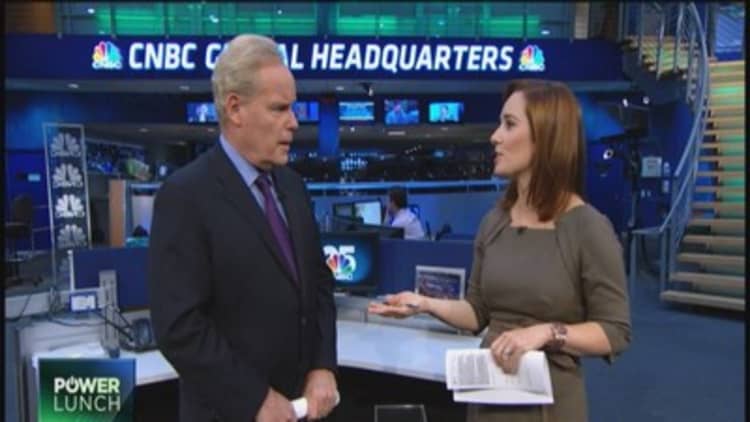First comes love, then comes marriage—but for more couples these days, in between there's a prenup.
There's been a fivefold increase in prenuptial agreements over the past 20 years, said Arlene G. Dubin, chair of the matrimonial and family law practice of Moses & Singer in New York. And they aren't confined to the uber-rich.

In 2013, 63 percent of divorce attorneys surveyed by the American Academy of Matrimonial Lawyers said they had seen an increase in the number of prenuptial agreements drafted in recent years. "As the financial and real estate markets continue to improve, there is a greater awareness of risk to possibly sharing these gains in a divorce," Alton Abramowitz, president of the AAML, said at the time in a news release.
Wealth is still a driving factor behind prenups, said Dubin, who also is the author of "Prenups for Lovers." A new report from Oxfam estimates the combined wealth of the world's richest 85 people is equivalent to that owned by half of the world's population. The "great wealth transfer" of assets from baby boomers and their heirs—expected to tally some $30 trillion over the next few decades—is also underway. "People have more property to protect than ever before," she said Monday at the American Institute of Certified Public Accountants' Advanced Personal Financial Planning Conference.
Read MoreWorld's richest have same wealth as 3.5 billion poorest
But prenuptial agreements aren't solely for the 1 percenters. These six factors are also becoming more influential among couples choosing to sign a contract before saying "I do."
Entrepreneurial endeavors
Work for a start-up? Assets like closely held business interests or stock options are tough to valuate, which can create a mess during a divorce, said Dubin. Prenups can spell out what valuation method would be used for such assets. "That way you cut down on some of the controversy," she said.
Older brides and grooms
Ages of first-time brides and grooms have been steadily climbing. A 2011 Pew Research report put the median age at 26.5 for a first-time bride, up from 23.9 in 1990; for grooms, the median was 28.7, up over the same period from 26.1. TheKnot.com estimates that in 2013, the average bride was 29 years old and the groom, 31 years old.
"By the time they get married, they do have some assets," said Dubin.
Swelling debts
Couples aren't just bringing assets to the marriage these days. Outstanding student debt stands at $1.2 trillion, surpassing credit cards and car loans, according to Experian, while CardHub.com puts the average household credit card balance at just shy of $7,000. A prenup can help set out responsibility for those payments and insulate you from a spouse's debt, said Dubin.
Read MoreStudent debt at all-time high of $1.2 trillion
Prenups also require a detailed listing of assets and liabilities, which can ensure there are no surprises. "It's amazing how many people will get married and then find out there's an IRS lien on a property," she said.
Reproductive rights
More than 400,000 embryos are currently being stored, said Dubin. While prenups can't dictate many issues related to children, they can cover who has rights to embryos—and it's an issue more couples want to hash out in advance, she said.
Blended families
In 2013, 40 percent of new marriages included at least one partner who had previously been married, according to Pew Research. The number of remarried adults has tripled since 1960, it said. The rate of divorce is about 60 percent in remarriages, said Dubin, versus 50 percent for all marriages.
Read MoreYou popped the question...now what?
Couples aren't necessarily thinking about that aspect, however. Prenups can be a useful tool in remarriages to set the structure of estate planning, she said. For example, one party can agree in the prenup to waive what portion of the estate they might automatically be entitled to under state law. That can help protect children from a previous marriage.
Social media
Celebrities set the trend of confidentiality clauses in prenups, but the advent of social media has prompted more couples to set out their rights before getting married as a way to protect their privacy, reputation and business interests, said Dubin. Less clear: What's considered confidential. "That can be the subject of quite a bit of negotiation," she said.


